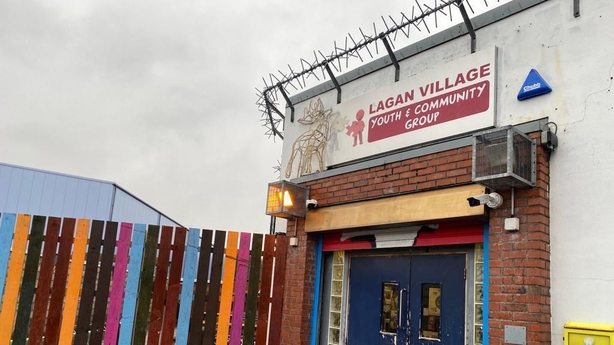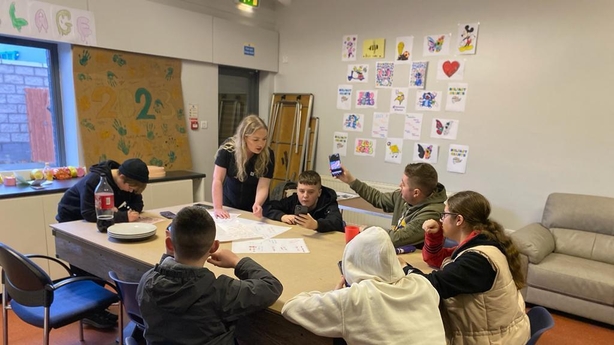According to the lore surrounding the Good Friday Agreement, Northern Ireland was to enjoy an economic transformation over the past 25 years. This is referred to as the peace dividend, the economic boost a nation or region receives with the ending of a conflict.
While economists are still analysing the extent to which this has happened, some communities, particularly in loyalist working class areas, feel the benefits of the peace process never reached them.
Rosemary Bell McCracken is a 33-year-old community worker in Rathcoole, Northern Ireland's largest housing estate, located 10km outside Belfast.
She is particularly proud of the strong sense of community around her home, but said the area has been neglected since the peace deal was signed.
"As a child growing up, there were different schemes that were put on for kids to go away to America and support the Good Friday Agreement and the aftermath of it. But they were small pots of funding," she said.

"That was spent within a matter of a few months, weeks or years. We're at the stage now where there's no benefit of the peace agreement being divided out, and even at the basis of peace, we haven't had peace. There's still a level of threat."
Rathcoole, and the Shankill where Rosemary grew up, are both staunchly unionist areas. But she feels they have much in common with nationalist working-class areas.
She said: "Where I grew up as a child on the Shankill, it was right on the peace line. And if you were to put a line across the wall - a wee girl on the opposite side the same age as me, she would be going through the same thing.

"That was poor housing conditions, lack of opportunities and the fear of going outside our door for what was happening at that time. There was no difference, and that's just how it still is.
"We're all the same people. We are all struggling in this day and age with the cost of living. There is a lack of opportunities or jobs."
Darren Leighton, a youth worker in Lagan Village Community Centre in East Belfast, also feels his community has been left adrift.
"Coming from a working-class loyalist background - opportunities seem to be a major issue," he said.
"I live in Donegall Pass. Which would be not even half a mile away from Queens University. It feels a million miles away from people from those areas, because of the educational under-achievement by young males in working class areas."
Like Rosemary, Darren believes there has been a lack of investment in working-class areas.

"If you walk around these streets, you'll see dereliction in the houses and buildings," he said.
"There's no social investment going in to try and regenerate areas. It seems we're at the point where Big House unionism, and basically politics as a whole in Northern Ireland, is leaving these communities behind.
"So, when you’ve got a section of your community which is feeling left behind, the peace agreement has failed."
However, Darren has some cause for optimism. He thinks, overall, life is better for younger people in his area than it was for their parents and grandparents.
He said: "You don’t see the bombs and bullets as much anymore. That’s always going to be the golden thing about the peace agreement.
"From my own perspective, I would never like to see it come back again, because these kids deserve an opportunity."






